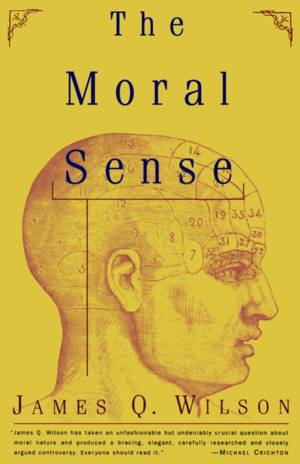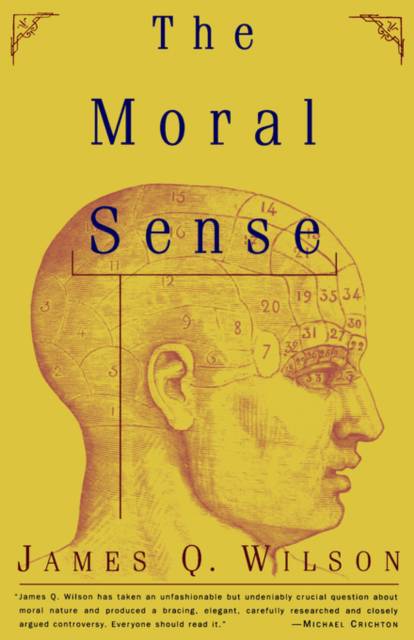
- Afhalen na 1 uur in een winkel met voorraad
- Gratis thuislevering in België vanaf € 30
- Ruim aanbod met 7 miljoen producten
- Afhalen na 1 uur in een winkel met voorraad
- Gratis thuislevering in België vanaf € 30
- Ruim aanbod met 7 miljoen producten
Zoeken
€ 33,95
+ 67 punten
Uitvoering
Omschrijving
Are human beings naturally endowed with a conscience? Or is morality artificially acquired through social pressure and instruction? Most people assume that modern science proves the latter. Further, most of our current social policies are based upon this "scientific" view of the sources of morality. In this book, however, James Q. Wilson seeks to reconcile traditional ideas with a range of important empirical research into the sources of human behavior over the last fifty years. Marshalling evidence drawn from diverse scientific disciplines, including animal behavior, anthropology, evolutionary theory, biology, endocrinology, brain science, genetics, primatology, education and psychology, Wilson shows that the facts about the origin and development of moral reasoning are not at odds with traditional views predating Freud, Darwin and Marx. Our basic sense of right and wrong actually does have a biological and behavioral origin. This "moral sense" arises from the infant's innate sociability, though it must also be nurtured by parental influence. Thus, this book revives ancient traditions of moral and ethical argument that go back to Aristotle, and reunifies the separate streams of philosophical and scientific knowledge that for so long were regarded as unbridgeable.
Specificaties
Betrokkenen
- Auteur(s):
- Uitgeverij:
Inhoud
- Aantal bladzijden:
- 336
- Taal:
- Engels
- Reeks:
Eigenschappen
- Productcode (EAN):
- 9780684833323
- Verschijningsdatum:
- 6/11/1997
- Uitvoering:
- Paperback
- Formaat:
- Trade paperback (VS)
- Afmetingen:
- 140 mm x 217 mm
- Gewicht:
- 421 g

Alleen bij Standaard Boekhandel
+ 67 punten op je klantenkaart van Standaard Boekhandel
Beoordelingen
We publiceren alleen reviews die voldoen aan de voorwaarden voor reviews. Bekijk onze voorwaarden voor reviews.







